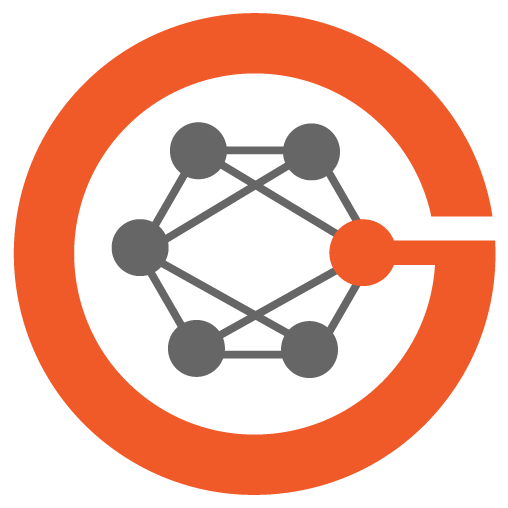Dr. Peter Hotez is a veritable force. He has been the tip of the spear among physicians and scientists for taking on anti-science and has put himself and his family at serious risk.Along with Dr. Maria Bottazzi, he developed the Corbevax Covid vaccine —without a patent— that has already been given to over 10 million people, and was nominated for the Nobel Peace Prize. Here an uninhibited, casual and extended conversation about his career, tangling with the likes of RFK Jr, Joe Rogan, Tucker Carlson, Steve Bannon, and an organized, funded, anti-science mob, along with related topics.
Today is publication day for his new book, The Deadly Rise of Anti-Science.
Transcript (AI generated)
Eric Topol (00:00):
Hello, this is Eric Topol with Ground Truths, and I'm with my friend and colleague who's an extraordinary fellow, Dr. Peter Hotez. He's the founding dean of the National School of Tropical Medicine and University professor at Baylor, also at Texas Children's founding editor of the Public Library Science and Neglected Tropical Disease Journal. and I think this is Peter, your fifth book.
Peter Hotez (00:28):
That's my fifth single author book. That's right, that's right.
Eric Topol (00:32):
Fifth book. So that's pretty amazing. Peter's welcome and it's great to have a chance to have this conversation with you.
Peter Hotez (00:39):
Oh, it's great to be here and great to be with you, Eric, and you know, I've learned so much from you during this pandemic, and my only regret is not getting to know you before the pandemic. My life would've been far richer. And
Peter Hotez (00:53):
I think, I think I first got to really know about you. You were are my medical school, Baylor College of Medicine, awarded you an honorary doctorate, and that's when I began reading about it. Oh. I said, holy cow. Why didn't, why haven't I been with this guy before? So
Eric Topol (01:08):
It's, oh my gosh. So you must have been there that year. And I came to the graduation.
Peter Hotez (01:12):
No, I actually was speaking at another graduation. That's why I couldn't be there, <laugh>. Ah,
Eric Topol (01:18):
Right. As you typically do. Right. Well, you know, it's kind of amazing to track your career besides, you know, your baccalaureate at Yale and PhD at Rockefeller and MD at Cornell. But you started off, I, I think deep into hookworm. Is that where you kind of got your start?
Peter Hotez (01:36):
Yeah, and I'm still, and I'm still there actually, the hookworm vaccine that I started working on as an MD-PhD student at Rockefeller and Cornell is now in phase 2 clinical trials. Wow. So, which is, I tell people, is about the average timeframe --about 40 years-- is about a, not an unusual timeframe. These parasites are obviously very tough targets. oh man. And then we have AOIs vaccine and clinical trials and a Chagas disease vaccine. That's always been my lifelong passion is making vaccines for these neglected parasitic infections. And the story with Covid was I had a collaboration with Dr. Sarah Lustig at the New York Blood Center, who, when we were working on a river blindness vaccine, and she said, Hey, I want you to meet these two scientists, New York Blood Center. They're working on something called coronaviruses vaccines.
(02:27):
They were making vaccines for severe acute respiratory syndrome and SARS and ultimately MERS. And so we, we plugged their, their, some of their discoveries into our vaccine development machine. And they had found that if you were using the receptor binding domain of the, of the spike protein of SARS and ultimately MERS it produced an equivalent protective immune response neutralizing antibodies without the immune enhancement. And that's what we wrote to the NIT to do. And they supported us with a $6 million grant back in 2012 to make SARS and MERS vaccines. And, and then when Covid 19 hit, when the sequence came online and BioXriv in like early 2020, we just pivoted our program to Covid and, and we were able to hit the ground running and it worked. Everything just clicked and worked really well. And stars aligned and we were then transferred that technology.
(03:26):
We did it with no patent minimizing strings attached to India, Indonesia, Bangladesh. any place that we felt had the ability to scale up and produce it, India went the furthest. They developed it into Corbevax, which has reached 75 million kids in India. And another 10 million as their, for their primary immunization. Another 10 million is adult booster. And then Indonesia developed their own version of our, of our technology called IndoVac. And, and that's also reaching millions of, of people. And now they're using it as a, also as a booster for Pfizer, because I think it may be a superior booster. So it was really exciting to s you know, after working in parasitic disease vaccines, which are tough targets and decades to get it through the clinical trials because the pressure was on to move quickly goes to show you when people prioritize it. And also the fact that I think viruses are more straightforward targets than complex parasites. And well, so that in all about a hundred million doses have been administered and
Eric Topol (04:33):
Yeah, no, it's just a spectacular story, Corbevax and these other named of the vaccine that, that you and Maria Bottazzi put together and without a patent at incredibly low cost and not in the us, which is so remarkable because as we exchanged recently, the us the companies, and that's three Moderna, Pfizer, and Novavax are going to charge well over $110 per booster of the, the new booster updated XBB.1.5. And you've got one that could be $2 or $4 that's,
Peter Hotez (05:11):
And it's getting, so we're making, we're making the XBB recombinant protein booster of ours. And part of it's the technology, you can, you know, it's done through microbial fermentation in yeast, and it's been in a big bioreactor. And it's an older technology that's been around a couple of decades, and there's no limit to the amount you could scale. The yields are really high. So we can do this for two to $3 a dose, and it'd even be less, it wasn't for the cost of the adjuvant. The C P G, the nucleotide is probably the most expensive component, but the antigen is, you know, probably pennies to, to, you know, when you're doing it at that scale. And, and so that, that's really meaningful. I'd like to get our XBB booster into the us It's,
Eric Topol (05:55):
Yeah, it's just no respect from,
Peter Hotez (05:58):
We're not a pharma company, so we don't, we didn't get support from Operation Warp Speed, and so we didn't get any US subsidies for that. And it's just very hard to get on the radar screen of BARDA and those agencies and, 'cause that's, they're all set up to work with pharma companies.
Eric Topol (06:16):
Yeah, I know. It's, it's just not right. And who pays for this is the people, the public, because they, you know, the affordability is going to have a big influence on who gets boosters and is driving
Peter Hotez (06:27):
<crosstalk>. Yeah. So, so what I say is we, we provide, you know, the anti-vaccine guys, like the call me a Shill for pharma, not knowing what they're talking about. We've done the opposite, right? We've provided a path that shows you don't need to go to big pharma all the time. And, and so they should be embracing what we're doing. So we, we've, you know, have this new model for how you can get low cost vaccines out there. Not, not to demonize the pharma companies either. They, they do what they do and they do a lot of important innovation. But, but there are other pathways, especially for resource coordination. So we'd love to get this vaccine in, in the us I think it's looking a little work just, just as well, it's, you know, but
Eric Topol (07:12):
You, yeah, I mean, it's not, I don't want ot demonize the vaccine companies either, but to raise the price fivefold just because it's not getting governed subsidy and the billions that have been provided by the government through taxpayer monies. Yeah.
Peter Hotez (07:28):
Well, the Kaiser Family Foundation reported that they did an analysis that, that pharma, I think it was Pfizer and Moderna got 25 to 30 billion Yeah. Dollars in US subsidies, either for development costs for Moderna. I think Pfizer didn't accept development costs, but they both took advanced purchase money, so $30 billion. And you know, that's not how you show gratitude to the American people by
Eric Topol (07:55):
Jacking
Peter Hotez (07:56):
Up the price times for, I think I said, guys, you know, have some situational awareness. I mean, do you want people to hate you? Yeah.
Eric Topol (08:04):
That's what it looks like. Well, speaking of before I get to kind of the anti-science, the, THE DEADLY RISE OF ANTI-SCIENCE, your new book, I do want to set it up that, you know, you spent a lot of your career besides working on these tropical diseases, challenging diseases, you know, Leischmania, and you know, Chagas, and the ones you've mentioned. You've also stood up quite a bit for the low middle income countries with books that you've written previously about forgotten people, Blue Marble Health. And so, I, I, before I, I don't want to dismiss that 'cause it's really important and it ties in with what the work you've done with the, the Covax or Covid vaccine. Now, what I really want to get into is the book that you wrote that kind of ushered in your very deep personal in anti-science and anti-vax, which I'm going in a minute ask you to differentiate. But your daughter, Rachel, you wrote a book about her and about vaccines not causing autism. So can you tell us about that?
Peter Hotez (09:11):
Yeah. So as you point out, my first two books were about these, what I would call forgotten diseases of Forgotten people. In fact, that's what the first book was called, forgotten People, forgotten Diseases, which my kids used to call Dad's Forgotten book on Forgotten people, Forgotten Diseases, all the, all the, now it's in his third edition. So, but it talks about, you know, the, how important these conditions are. It's just that they're widely prevalent. It's just that they're occurring among people who live in extreme poverty, including people in poverty in the United States. That's why we set up our School of Tropical Medicine on the US Gulf Coast. I didn't do it for the summer weather which is these days in this heat dome. It's like, well, living on planet Mercury right now, in here, here in Texas.
(09:58):
But then, so that, that's what, that's how I started learning how to advocate, you know, for people and for diseases through neglected diseases. But, you know, when we came to Texas, we saw this very aggressive anti-vaccine movement, and they were making false claims that vaccines cause autism. And, and I said, look, I'm, you know, I'm a vaccine scientist here in Texas. I have a daughter with autism, Rachel, with an, an intellectual disabilities. And so if I don't say something who does, and, and then wrote the book, vaccines did not cause Rachel's Autism, which unfortunately made me public enemy number one or two with anti-vaccine groups. but you know, it, it, it does a deep dive explaining the science, showing there's absolutely no link between vaccines and autism, but also an absence of plausibility because what we know about autism, how it begins in early fetal brain development through the action of autism genes.
(10:54):
And we actually did whole exome genomic sequencing on, on Rachel and my wife Ann and I, and we found Rachel's autism gene, which is like many of them in, involved in early neuronal communication and connections. It was actually a neuronal cytoskeleton gene, as are many, in this case, a neuronal spectrum. And that one hadn't been reported before, but other neuronal cytoskeleton genes had been reported by the Broad Institute at Harvard, m i t and others. And, and that was important to have that alternative narrative because the refrain from always was, okay, doc, if vaccines don't do it, what does cause autism? And, and being able to have that other side of the story, I think is very compelling.
Eric Topol (11:37):
What was it, the, the fabricated paper by Andrew Wakefield and the Lancet that, that got all this started? Or did it really annotate the <crosstalk>? There was
Peter Hotez (11:47):
Something before in the eighties about the DPT, the diptheria, pertussis tetanus vaccine claiming it caused, you know, seizures and then could lead to neurodevelopmental difficulties. But it really took off with the Wakefield paper in 1998, published in The Lancet. And that claimed that the MMR vaccine, a live virus vaccine, had the ability to replicate in the colon of kids. And somehow that led to pervasive developmental disorder. That was the term used back then. And I was Rachel's diagnosis. And it never made sense to me how something, 'cause the reason it's pervasive is it's, it's global in, in the central nervous system in, in the brain. And how, how could something postnatally do something like that? I mean, there is, there are epigenetic underpinnings of autism as well, and that's fun. Eric, you ever talk to, ever try to talk to lay audience about epigenetics? That's a tough one. That's, that's a tough one. You start talking about microRNAs and DNA methylation, histone modification. The, the lights go out pretty quickly, but
Eric Topol (12:46):
Chromatin and histone modification. Right? Bye-bye. Yeah, you got that one.
Peter Hotez (12:51):
That, so that's,
Eric Topol (12:52):
But that, that was your really, you know
Peter Hotez (12:55):
But that's when, you know, I started going up against Robert F. Kennedy Jr. And, and, and all that was, that was pre-pandemic.
Eric Topol (13:03):
That was in 2018, right?
Peter Hotez (13:05):
2017 Trump came out and said, you know, it was about to be inaugurated and, and RFK Jr said he was going be appointed to run a vaccine commission by the Trump administration. And, and I actually was sitting, you know, in my office and my assistant said Dr. Francis Collins and Dr. Anthony Fauci are on the phone. Do you have time to talk with us <laugh>? And I said, yeah, I think so. And they arranged, they had arranged for me to, because I have a daughter with autism could articulate why vaccines don't cause out arranged for me to speak with RFK Jr threw it through a mediator and, and, and it didn't go well. He was just really dug in and, and so
Eric Topol (13:49):
He, he was just as bad then as now.
Peter Hotez (13:52):
Yeah. I mean, it was just, you know, kept on, you know, as I say, moving the goalposts, you couldn't pin him down. Was he talking about MMR? Was he talking about the am Marisol, was he talking about spacing vaccines too close together? He just, that always kept on moving around and, and then it was not even autism at times. You were talking about it was something called chronic illness, you know, you know, what do you do with that? Mm-hmm. <affirmative>. So I, and that's one when I was challenged by, you know, Joe Rogan and Elon to debate RFK Jr, one of the reasons I didn't want to do it, because I, I knew, you know, doing it in public would be no different from doing this in, in, in private, that it would not be a productive conversation.
Eric Topol (14:39):
Yeah, no, that I can, I do want to get into that, because that was the latest chapter of kind of vicious anti-science, which was taking on covid and vaccines and the whole ball of wax whereby you were challenged by Joe Rogan on his very big podcast, which apparently is, you know, bigger than CNN various cable news networks,
Peter Hotez (15:07):
Which I had done, I had been on his show a couple of times. Yeah. And that was, and that was okay. I mean, I actually liked the experience quite a bit. And
Eric Topol (15:15):
And he challenged you to go on with RFK Jr. And then Elon Musk, you know, joined and, you know, basically <crosstalk>
Peter Hotez (15:21):
Actually, he started before then, about the week before, or a few days before, Steve Bannon publicly declared me a criminal. And you know, which I said, wow, that's, that's something. And then Roger Stone weighed in. So it was this whole sort of frontal attack from, well, people with extremist viewpoints. And there's
Eric Topol (15:41):
Been a long history, and a Tucker Carlson in the book, you quote, he referring to Hotezis a misinformation machine constantly spewing insanity. Speaking of projecting things, my goodness. Yeah.
Peter Hotez (15:54):
Yeah. Well, he did that. You know, he, that was the, that was in 2022. It was, he went on his broadcast the evening after the evening of the, in the, during that day I, with Maria, I was, we were nominated for the Nobel Peace Prize. And I guess, and I don't know if the two are related or not, I think it may have <laugh> driven him off the edge, and then he just went on this rant against me. And, you know, claimed I have no experience anything about Covid. I mean, we had made two covid vaccines, right. And transferred the technology nominated for the Nobel Peace Prize and just, you know, omitted all of that. But this is how these guys work. It's, it's all about asserting control. And, and it seems to come from an extremist element of the, of the far right.
(16:39):
and, and, and it's not that I'm a very political person at all. I mean, you know, I've been here in Texas now for 12 years, and I've gotten, you know, I've gotten to know people like Jim Bakker and his wife Susan Baker and, and you know, a lot of prominent Republicans here in Texas, that that wasn't an issue. This is something sort of weird and, and twisted. And, and the point that I make in the book is, and it's not just a theoretical concern or a construct, it's the fact that so many Americans lost their lives during the delta and BA.1 omicron waves in 2021 and 2022, after vaccines were widely and freely available because they refused a vaccine. so vaccines were rolled out in 2021. we started strong and then vaccination rates stalled. And then we didn't get very far by this after the spring because there was this launch of an, of, of a wave of what I call anti-vaccine or anti-science aggression, convinced that deliberately sought to convince Americans not to take a covid vaccine.
Eric Topol (17:56):
Chapter, yeah. Your chapter in the book Red Covid. Yeah, gets into it quantifies it, hundreds of thousands of lives lost. And I know you've seen some of the papers whereby studies in red states or states like Ohio and Florida showing the, the, the connection between this.
Peter Hotez (18:15):
Yeah, I, I relied heavily on this guy Charles Gaba, who has a, a website called ACA signups. And he did some really in, you know, strong analysis showing that the, that the people who were refusing covid vaccines and losing their lives were overwhelmingly in red states and could even show the redder the county as measured by voters, the lower the immunization rate and higher the death rates. And the term Red Covid came from David Leonhart of the New York Times wrote an article about Charles Gaba's work, and he called it Red Covid and did a lot of updates. And the data is so strong. I mean, so much so that one person at the Kaiser Family Foundation wrote, if you wanted to ask me whether or not a person was vaccinated, and I can only know one thing about them, you know, she said, the one thing I'd want to know is what political party they're affiliated with.
(19:09):
It was, it's, it's that strong. And it's, and it's not that I care about your politics, even your extreme views, but somehow we have to uncouple this one from it, right. Because somehow not getting vaccinated been added to the canon of stuff that you're supposed to believe in. If you are, if you're down that rabbit hole watching Fox News every night, or, or listening to Rogan Podcasts and that sort of stuff. And somehow we have to uncouple those two, and it's the hardest thing I've ever had to do. First of all, it's unpleasant to talk about, because all of, you know, your training, Eric mine as well is, you know, said you don't talk about politics and you're, you know, we're supposed to be above all that. But what do you do when the death and dying is so strong on, on one side?
(19:58):
And, and I, I was in east Texas not too long ago, giving grand rounds at a new medical school in East Texas and Tyler, Texas, and very conservative part of the state. And, you know, basically everyone you talked to has lost a loved one mm-hmm. <affirmative> because they refused a Covid vaccine and died. I mean, that's, that's where you really start to see that. And then, and these people are wonderful people. I gave you know Bob Harrington at oh yes, at at Stanford Medicine, now he's going be the Dean of Cornell. He, he invited me with Michelle Berry to, to give grand rounds, medical grand rounds at Stanford. And I said, look, if, if my car had broken down and the flat had a flat tire, and you, and I can't fix, I'm, I'm a disaster at fixing anything.
(20:49):
So if you said, okay, where you had the choice, where, where do you want your car broken down in Palo Alto, California, or Stanford is, or very wealthy enclave or East Texas, I'd say I'd pick East Texas in a second. 'cause in East Texas, they'd be fighting over who you know, is going to rush to help you change your tire. Right? And these are, you know, just incredible people. And they were victims. They were victims of this far right. Attacks from, from Fox News. And one of the things I do in the book is, you know, the documentation is really strong media matters. The Watchdog group has looked at the evening broadcast of Tucker Carlson, Laura Ingram, and, and Hannity, and, you know, can I, you know, actually identify the anti-vaccine content with each broadcast during the summer and fall. And then our a social science research group out of ETH Zurich, the Federal University of Technology of Zurich, where Einstein studied, actually, you know, one of the great universities did another analysis and showed that watching Fox News is one of the great predictors of refusing a vaccine.
(21:52):
And, and so that, those were the amplifiers, but those generating a lot of the messages were elected leaders coming out of the House Freedom Caucus, or Senator, you know, Johnson's conservative senate that, I don't even like to use the word conservative, because it's not really that they're conservative, they're extremists. And yeah, a Senator Johnson of Wisconsin, or Rand Paul, you know, of, of Kentucky, you know, all the physician know what Yeah. And know physician and the CPAC conference of conservatives in Dallas, in 2021, they said, first you're gonna, they're going to vaccinate you, and then they're going to take away your guns and your Bibles. And as ridiculous as that sounds to us, people in my state of Texas and elsewhere in the South accepted it and didn't take a covid vaccine and pay for it with their lives. And, and how do we, you know, begin walking that back?
(22:45):
And, and the point of writing the book said, well, the first step is to at least describe it so people can know what we're talking about. Because I think right now, when you look at the way people talk about anti-vaccine or anti-science stuff, they, they call it misinformation or the infodemic, like it's just some random junk that appears out of nowhere on the internet. And it's not any of those things. It's, it's organized, it's well financed. It's politically motivated, and it's killing Americans on, on a massive scale. So I said, look, you know, I, I went, I'm did my MD and PhD in New York at Rockefeller and Cornell. I devoted my life to becoming a vaccine scientist. You know, the motto of Rockefeller universities to be the Rockefeller Institute of Medical Research translates to science for the benefit of humanity. And, and I believe making vaccines is one of the high expressions. And I think most physician scientists believe, I think you believe that too. And that's why you're, you're in this as well, you know, not vaccines, but you know, other lifesaving interventions. And, and so I said, well, now making vaccines is not enough. 'cause now we have to counter all of this anti-vaccine stuff, and there's, there's nobody better, you know, in terms of my training and my background going up against anti-vaccine movements because of Rachel to do this. So I, I've done it and yeah.
Eric Topol (24:11):
Well, you've done it. All right. you,
Peter Hotez (24:14):
That's my wife. Ann says you've done it. Alright, <laugh>.
Eric Topol (24:17):
Well, as I wrote in your, with your book of blurb about you are a new species, the physician scientist warrior, and you are Peter, because you're the only one of all the physicians. We're talking about a million docs almost in this country who has stood up and you've put your life at risk, your family at risk, you've had death threats, you've had the people you know, come right to your house. and so what you've described this kind of coalescence of political will of extremists, media, of course, amplification because it benefits them. They, they're selling more you know, they get more viewers, more the spots for commercials and more they can charge. And then you're even, as you described in the book, so well, is you even have outside interested parties like Russia as part of this organization, of this coalescence of forces that are taking on the truth, that are promoting anti-science, that are winding up, people are dying, or, yeah. Or having a, you know, serious morbidity,
Peter Hotez (25:26):
Right? Yeah. In the case of, in the case of Russia, , it's a slightly different motivation. What they're doing is they're filling the internet and social media with both anti-vaccine messages and pro-vaccine messages. Because they have a different agenda. Their agenda is destabilized democracies. So what they're doing is they're cherry picking certain issues that they can use as a wedge to sow discord. And so when they saw the stuff about vaccines, yeah, they'll flood it with both pro and anti-vaccine message. And you see the stuff on Twitter, so much of it is computer generated, and it's just repeats the same stuff over and over again. And, and a lot of that are, you know, some of that not only, only Russia, I think China's doing it, North Korea, Iran's doing it, but particularly Russia. And that was documented by a colleague of mine, David Broniatowski who's a computer scientist at George Washington University, has really done a deep dive in that. So so's
Eric Topol (26:22):
I think a lot of people are not aware that's what your book, book brings to light of how organized, how financed, you know, how this thing is a machine from coming from many different domains, you know, and for different interests as you, as you just summarized, it's, it's actually scary. And besides you standing up and facing, you know, the really ultimate bravery with the, all of the, these factions attacking you, literally ad hominem, you know, personally attacking you, then you have you know, this continues to get legs throughout the pandemic, and there's no counter as you've, as you've touched on what is going to be done. You can't stand up alone on this.
Peter Hotez (27:09):
Well, there's, there's a couple of things. First of all, it's not only attacking the science, it's attacking the scientists. Right, right,
Eric Topol (27:15):
Right.
Peter Hotez (27:16):
Exactly. It's, it's portraying and you get get it too, as well. I mean, it's basically portraying scientists as enemies of the state. which I think is so dangerous. I mean, as I like to say, you know, this is a nation that's built on science and technology, right? The, you know, the strengths of our research universities and institutions like Scripps, like Baylor, like Rockefeller, like MIT and Stanford, and University of Michigan and University of Chicago. This is what, you know, helped us defeat fascism in World War II as evidenced by the Oppenheimer movie, right. Or, and or allowed us to achieve so many things, why people so admire our nation. When I served as US Science Envoy and the Obama administration, the State Department, and the White House. I mean, that's where people loved our country, is they all wanna study at our research universities, or they want their kids to study at our research universities.
(28:10):
And, and by attacking not only science, but the scientists, I think it's weakening our stature globally. And, and, and, and I think that's, that, that's another aspect. I think the other problem is we, we don't get the backing that I think we should from the scientific societies in the Times, even the National Academies. I think they, they could be out there more. exactly why, you know, I think part of it is they see, they see how I get beat up and they say, well, what's that? Right? Yeah. And I, and I understand that, but I think also, you know, they, they depend on, oftentimes on government funding. And I think they're worried that, you know, if they're, again, it's this idea that you have to be politically neutral, even if it favors the torment or the aggressor to paraphrase Desmond Tutu, that's part of it as well.
(29:09):
I mean, it, I mean, I do find it meaningful. It's scary at times, and I, but I do find it meaningful to ha to have this role. But getting, getting more help and backing, I mean, we're our, our university, I mean, Baylor College of Medicine, Texas Children's Hospital has been pretty good. You know, Stan, you know, having my back, it's not that way at every, and I know Scripps has been really strong with what Kristian Anderson's had to deal with around you know, all the phony bologna around covid origins. But, but not all academic health centers are that way. And, and I think we need our university presidents to be more vocal on this issue. And, and too often they're not as well as our academies and our, our scientific societies, because this is, I believe, going to do irreparable harm to, to science. Well, yeah.
Eric Topol (30:04):
You know, in my experience too, we, we've actually seen, you know, academic physicians who have basically, you know, supported conspiracy theories who have detracted from evidence and science, you knowin a major way. Some of the leading universities here as you, as you mentioned. And when I've contacted and others, their leadership, they say, well, freedom of speech, freedom of speech. 'cause they're afraid to confront them because, you know, all the different things. We've, we, you've mentioned social media, but no, the universities don't want to get attacked on social media. They're afraid of that. They're afraid of, of calling out, you know, one of the people, faculty members who are deliberately, you know garnering a lot of, yeah. And,
Peter Hotez (30:56):
And the point is, is it's not just, you know, freedom of speech in the sense of espousing you know, crazy views. It's the fact that they're going on the attack against mm-hmm. <affirmative>. I mean, I don't attack these guys, but they attacked me with, with impunity and Yes. Say terrible thing, untrue things about me. I mean, where's there's, isn't there something called professionalism or, or ethics, yeah. Right. That don't, don't, don't, don't we, aren't we supposed to be in instilling that in our, in our faculty and, and that that doesn't seem to happen.
Eric Topol (31:28):
So that's
Peter Hotez (31:28):
Troubling as
Eric Topol (31:29):
Well. They're, they're making credible scientists who are doing the best they can into pinatas Right. And attacking them. And with, and it can't, it can't be reciprocated because that's, that's beneath professionalism. I mean, just as you say. So, you know, you just keep, they just keep going at it. So what you have is now we've added all these different entities and all add more. One more is ai, which is going to further blur the truth.
Peter Hotez (31:59):
Yeah, Renee DiResta at the Stanford Internet Observatory, I don’t if you know Renee, she does fabulous work. And she's written about, you know, what happens when, you know, all of the anti-science, anti-vaccine stuff is now imbued with ai, and, you know, it's going become even more sophisticated and more difficult
Eric Topol (32:17):
To No, there's, there's gonna be a video of you saying that, you know, these vaccines are killing people but don't get a booster and it'll be just like you with your voice. Yeah.
Peter Hotez (32:28):
Well, they already, they already have. Now these, there's these few things on YouTube that, that claim, I'm secretly Jack Black, the actor <laugh>. And that the CIA has arranged it so that Jack Black plays this fictional character named Dr. Peter Hotez. And they do all these things like, you know, focus in on my eyes and do like eye identification. It's just, it's just nuts. I mean, what, what's out there?
Eric Topol (32:54):
Well, has there been a time in these months where you were very scared you, you're for yourself or your family because of all the incredible density and, and what appears to be very serious threats and during
Peter Hotez (33:08):
<crosstalk>, during, during the day, during the day, I'm okay. I mean, in, you know, when the, when the, when the Steve Bannon in stuff and Joe Rogan stuff, then I had the stalking at the house, and, you know, I had to have a Houston Police Department officer parked in front of my house or a Harris County Sheriff that, that was troublesome. But it, it's more of during the day, I am fine. I'm working, I'm talking, you know, to people like you and in lab meetings, doing what scientists do, writing grants and throwing pencils at the wall when you get a paper with a major review or, or a major revision or rejection. But, but it's, I think at night, you know, wake up in the middle of the night and the, it's, the stuff does start to mess with your head at times. And it's
Eric Topol (33:54):
Well, and you travel a lot and you, you've, I think expressed that, hey, you could be given a talk in an innocent place and somebody could come, you know, attack you
Peter Hotez (34:04):
There. Yeah. So I have to, I have, I have security now at, in major venues when I speak. and, you know, I had an, there was an incident at the World Vaccine Congress in Washington. There were protesters out in front of the, out in front of the convention center waiting for me that that wasn't fun. And so, even, you know, we've got, we'll see what happens with the, when the, you know, I'm doing a number of events around the book in Washington DC and New York and elsewhere. We'll, we'll see how that goes. so
Eric Topol (34:38):
Well take it. You, you're, I know you well enough to know that you're an optimistic person. I mean, you've been smiling and we've been laughing during this and discussing some very heavy, serious stuff. What gives you still optimism that this can someday get on track?
Peter Hotez (34:57):
Well, I think it could get worse before it gets better, first of all. And, and two fronts. One, you know, I had the opportunity to meet with Dr. Tedros, the World Health Organization Director, general of World Health Organization towards the end of last year. And to say this could be the warmup act in the sense that now it's globalizing. I'm anticipating spillover all childhood immunization rates. And, you know, you're starting to see the same US style of anti-vaccine rhetoric now, you know, even in low and middle income countries on the African continent in South Asia. So I worry about, you know, measles and polio, both in the US and, and globally. I think that's, that's, I'm worried about that. The other is, you know, a lot of this is heating up, I think because of the 2024 presidential election. I think one was that with, with our, our mutual friend and colleague Anthony Fauci, now that he's out of government he's not as visible as he was.
(35:58):
I think they're, the, the extremists are looking around for another, they need a monster right. To, to galvanize the base. And I think I've become that monster. You know, that's, that's one thing I'm worried about. But also you with, I talk to probably someone you've seen on Twitter. and I've gotten to know her somewhat, I'm very impressed with her. Molly Chong Fast, who's a commentator on c n at M S N B C, and she, you know, put out there, and she told me privately and put it out in public that, you know, one of the reasons why things are so vicious around RFK Jr, as they see him as a third party candidate that could take Biden votes away and help create a path for Trump being elected. So by, you know, by having me debate him, it, it kind of elevated in, in its own way, elevated his stature and made him seem like a more serious person. Right, right. And my refusal, you know, popped their bubble. And that, that's one of the reasons why, why they're so angry. So this is very much tied, I think, to the 2024 presidential look. And that's what you're having seen with the House subcommittee hearings too, portraying scientists as enemies of the state. It's all for, I mean, I don't know if you've seen this, the, that House Subcommittee Twitter site, it actually says something like, we're selling popcorn, you know, we're
Eric Topol (37:18):
Yeah, I know. I mean,
Peter Hotez (37:20):
They're, they're not, they're not even pretending it's anything, the
Eric Topol (37:23):
Political
Peter Hotez (37:23):
Theater for Fox News soundbites. So I think we're gonna see they're the word.
Eric Topol (37:27):
Alright. Yeah.
Peter Hotez (37:28):
Yeah. And, and, but, you know, but the attacks on biomedical science, I think are gonna be, you know, have a long-term effect. If for no other reason, I think people are gonna think twice about wanting to do a PhD in biomedical scientist or become an MD PhD scientist when they see that, you know, we're
Eric Topol (37:47):
<crosstalk>. Well, that's what you, you also covered that really well in the Yeah. In the book. But when you think about where we are now with climate crisis, or we're facing future pandemics, not just the one we're still working through here where is the hope that we can counter this? I mean, we need armies of people like you. We need, as you say, the scientific establishment and community all stand up. That, that gets me to one of the things that makes you differentiates you from most physicians and scientists. You write books, you are active on social media. You, you appear on the media. Most scientists grew up to have their head do the work, do good science, get their stuff published, and get grants and, you know, try to advance the field and physicians doing that, are taking care of patients, same kind of thing. What prompted you in your career to say, Hey, you know, that's not enough. I got another dimension. And why, how can we get millions of clinicians and scientists to rally to do what you're
Peter Hotez (39:01):
Doing? Well, in my, in my case, I, it's not that I was deliberately seeking to be a public figure or what some call a public intellectual. It was more the case, the issues that I was most interested in, nobody was talking about. Mm. And nobody was going to talk about it. So if I didn't talk about it, it wasn't gonna be talked about. So neglected tropical diseases, you know? Yeah. For guard people was, and, and I had two colleagues in the uk, Alan Fannick and David Mullen, who felt the same way. And so we began be, we became the three Musketeers of the neglected tropical disease space. And I found that extremely meaningful and interesting. And it was the same with vaccines. So although I, I'm often in the, you know, doing a lot of public engagement, if you notice, I don't try to be like some people who do it very well, like as Sanjay Gupta or, or some others that will, or Megan Rainey that will talk about, you know, just about any health issue.
(39:56):
I, I don't try to do that. I sort of stay, it's a wide lane, but I try to stay in my lane around infectious, neglected diseases and, and, and vaccines. And I think that's very important. Now, in terms of, you know, the statement, most scientists or physician scientists wanna keep their head done, write their grants and paper. I think that's perfectly fine. I don't think you people should be forced to do it, but I think there's enough of us out there that wanna do it, but don't know how to get started and don't feel safe doing it. I, and so I think we need to change that culture. Mm-hmm. I think we need to offer science communication to our graduate students in their PhD programs or in MD PhD programs for those who wanna do it, or in residency training or fellowship training. And so that, because there, there are things you can learn.
(40:46):
I mean, we had to do it by trial and error, and in my case, more error than trial. But, but, but there is a, there is, there are things you can learn from people who do this professionally. So I think that's important. I think the other is we need to change the culture of the institutions. You know, I, I get evaluated just like you do like everybody, like any, you know, senior scientist or professor at university, and, you know, what do they ask me about? They ask me about my grants and, and my papers preferably in high impact journals, and they ask me, and I don't see patients anymore, so they don't ask me about my clinical revenue, but they ask me about my grants and papers and my grants and papers, and my grants and papers. There's not even any place on my form, my annual evaluation from, to put in the single author books. I've written much less, you know? Yeah. The, the opinion pieces I've written, or certainly not social media or even, or even the cable news channel. So, so it basically, the academic health center is sending the message. And I don't think that's unique. I think that's probably the rule in most places. I think the, the culture of academic health centers is they're basically, they're sending a message just saying, well, we don't consider that stuff important, and somehow we have to make it important. I think for those who wanna do it
Eric Topol (42:08):
Absolutely
Peter Hotez (42:09):
To send that message,
Eric Topol (42:10):
You're, you're, you're pointing out a critical step that has to be undertaken in the future. it'll take time to get that to gel, hopefully, but if it's promoted actively, I certainly promote that. I know you do. Yeah. I think,
Peter Hotez (42:23):
I think most, most offices of communications at academic health centers, as I said, Baylor and Texas Children's is pretty good, better than most, but most, you know, don't even like their docs and scientists speaking out. Yeah. Right. They wanna control the message. It's all about, you know, they're very risk averse. They're protecting the reputation of the institution. They only see the risk side. They don't, you know, you know, you wanna speak about social justice or, or combating anti-science. Well, you know, we guess we can't stop you, but they sort of cringe at, at the idea. And then, you know, they say, well, you know, ultimately you're a professor or a scientist here, you have academic freedom.com, but don't screw this up. Right. And don institution at risk. Right.
Eric Topol (43:07):
Ab you're describing exactly how university communications worked.
Peter Hotez (43:12):
Yeah. But
Eric Topol (43:13):
The
Peter Hotez (43:13):
Point is, and so you do it with the sort of Damocles over your head, and, and you know, as you know, and as anyone knows, if you do enough, you will screw it up eventually, right? Everybody does. And, and you know, you're gonna make mistakes. That's how you learn. You make mistakes and you, you auto correct. But, but you have to have that freedom to be able to make mistakes and Yeah. And right now that's not there either.
Eric Topol (43:35):
What, what you're driving at though altogether is that we're defenseless. That is, if you have an organized finance coordinated attack on science, and also of course on vaccines, and you have no defense, you have, I mean, it's hard for the government to stand up because they're part of what's the conspiracy theory is, is, is against, and you, and, and the scientific community, the clinician community is, you know, kind of handcuffed as you are getting at. And also, you know, that's not the culture that's unwilling, but something's gotta give. And this is one thing I think you're really reinforcing that, that should a pathway to countering. I mean, we can't clone you. You know, we can't, we need lots of warriors. We need, you know, thousands and hundreds of thousands of points of light who support data and evidence, you know, as best that they can. And we don't have that today.
Peter Hotez (44:36):
Yeah. And we, we need to cultivate that. So I'm in discussions not only with people like yourself, but other colleagues about should we try to create, whether it's a nonprofit of 5 0 1 C three or C four the climate scientists are ahead of the game on this. Yeah. Yeah. I, I talk to Michael Mann every now and then, and, you know, they've got a climate science defense fund. They, they seem to be, 'cause it, they've, they've experienced this for longer than we have. You know, the, this all started a decade before with tax against climate scientists, you know, should, in the book I talk about, should we create something like a Southern Poverty Law Center equivalent to, to protect science and scientists? And, and I think we need that because the existing institutions don't seem willing to, to create something like that. It's somehow seen as too edgy or too out there and Right.
(45:30):
And it shouldn't be. But, but again, this is a I think a, a great opportunity for college presidents to, to step up and, and they're not doing that. They're, they're also pretty risk averse. So I think, you know, getting, getting the heads of the academic health centers, getting the college president, university presidents to say, Hey, this is important because otherwise science is at risk. And, and you're already starting to see some crazy stuff come out of the N I h now about doing international research. They're trying to put in rules to say they want, you know, if you have international collaborators, you're supposed to collect their notebooks and translate the how are you gonna do that? That's, that's completely, IM it's important. I mean, it's, and who's gonna review it and who's gonna sign off in general legal counsel at the university on, that's basically gonna halt international research. And we have to recognize that we need this because the threats are coming. Right? I mean,
Eric Topol (46:33):
Cli
Peter Hotez (46:34):
Climate change is real, and pandemic threats are real. We're gonna see another major coronavirus pandemic possibly before 2030 or a flu or an arbovirus. And, and we're, we're, we need, this is a time we need to be reinforcing our, our virology research and our infectious disease research, not a time to, you know, start dismantling it, which is what totally the house hearings are, are meant to do, and what some of these new n i h rulings are meant to do. So it's gonna take a lot of strong players and, and, and government and at universities to stand up to this.
Eric Topol (47:14):
Well, if we ever need to be vaccinated or immunized, it's against this. And I hope that something will give to start to provide an antidote to what is a relentless progression of united science that you so elegantly eloquently in, in your book, Peter. So thanks for writing that. thanks for joining today. I know we'll have, as we do every week conversations yeah. You,
Peter Hotez (47:41):
You've been a, you've been an amazing friend and colleague, Eric, and I've learned so much from you. And, and
Eric Topol (47:46):
No, no. I, I feel I can't tell you thank you. I, I, I think it's completely reciprocal from what you bring to this table of trying to make this a better place for advancing science search for, for the truth of what's really going on out there, rather than having to deal with wacky, you know, extremists that are advancing things for various purposes that are, that are nefarious in many cases. So, appreciate it. we'll be talking some more and this has been a really for me, an enriching conversation.
Peter Hotez (48:21):
Same, same Eric. And thank you so much for giving this attention and the dialect to be continued.
Thanks for listening, reading and subscribing to Ground Truths!
Please share if you found this podcast worthwhile
Full video link












Share this post